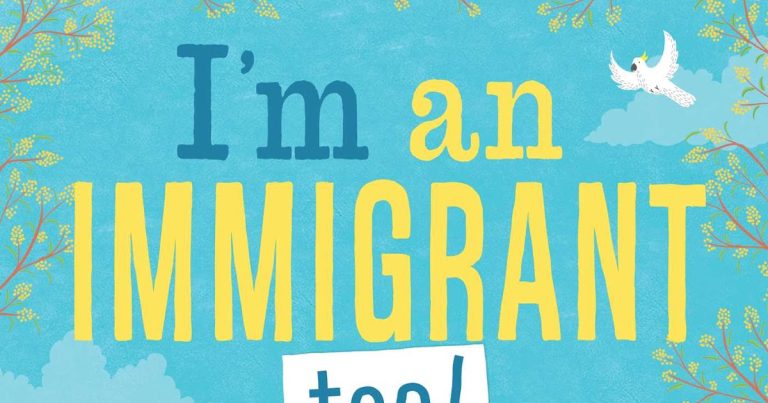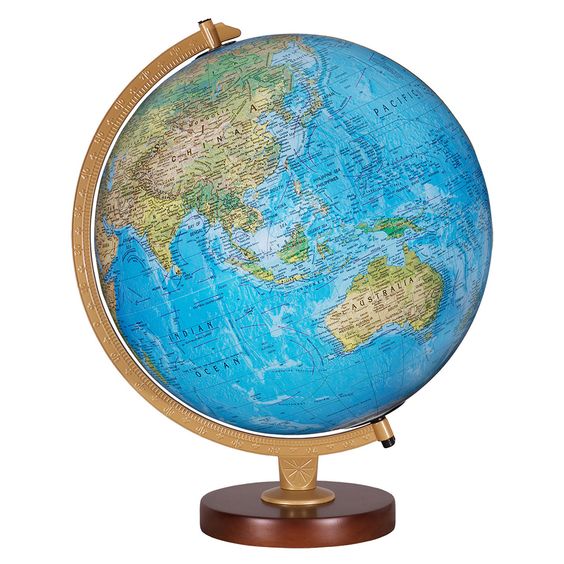
If you are born to a country your acceptance is automatic. As an immigrant you have to constantly prove your worth and justify your decision to uproot your entire life and start afresh.
By Tom Arms
I am an immigrant. I emigrated from the United States to the United Kingdom on the 12th of December 1971.
I had studied for a year in Britain 18 months before and fell in love with the country and one of its citizens and moved back despite the dreary weather and traffic jams.
I did not flee a Middle Eastern, African, Central Asian or East European War. I did not turf up at Heathrow claiming political persecution or risk crossing the English Channel in an inflatable raft. Neither was I escaping a life of poverty in an African mud hut. In fact, if I had stayed in America I would probably be enjoying a comfortable country club existence.
Nevertheless, I feel an affinity with Africans, Asians, Hispanics, or any person from any race or country who left their homeland to seek a new life. It is not easy to leave the safety net of cultural familiarity, family and friends.
If you are born to a country your acceptance is automatic. As an immigrant you have to constantly prove your worth and justify your decision to uproot your entire life and start afresh.
I feel I have succeeded. I started an international news agency which launched the careers of well over a hundred journalists. My children are all a credit to me as are the 200 boys and girls—many of them now young men and women– who have passed through my scout group over the past 20 years.
I am not boasting. In fact, I don’t regard myself as particularly unusual. Immigrants in every country have outstanding records of contributing to their adopted homelands.
Think about it, by their very nature immigrants have proven through their actions that they are risk takers. They are adventurers. They are focused, determined and prepared to work hard to achieve their aims. Such people are assets to any community lucky enough to have them.
Just ask the American shareholders of Ebay, Tesla, Google, Intel, Yahoo and Sun Microsystems. They are all grateful to the immigrants who started the businesses which keep them in their gated communities and on their expensive golf courses. According to the National Venture Capital Association, immigrants started 25% of America’s businesses financed by venture capital.
Here is another statistic for you, according to the US Small Business Administration, immigrants are 18 percent more likely to start a business than native born Americans. On top of that, those small businesses in 2015 employed 4.7 million Americans.
Republicans in America and Boris Johnson and Pritti Patel in Britain claim that immigrants are sucking their countries dry. Their views are echoed by a rapidly growing anti-immigration lobby throughout the Western world. Well, according to a report from University College London—one of the world’s top educational establishments—between 2004 and 2014, immigrants from the European Union put $15 billion more into the British economy than they took out. In fact, the ethnic group which took out more in benefits than it put in was the native-born Brits who—over the same period—cost their country an estimated $700 billion more in welfare, education and health benefits than they paid in taxes.
And what about the millions of aliens that Trump planned to deport and would do so if elected in 2024? Well, according to the US Immigration Policy Centre, Latinos spent $1.5 trillion in 2015 and the Asians $775 billion. Of course, most of these people are legal, but still it is clear that if he has his way Trump will send a lot of money to the other side of his wall.
Opposition to immigration is not just based on cash. There is also a strong argument that they are undermining native cultures. It is true that people bring customs across borders. My family, for instance, make a point of celebrating Thanksgiving. Every year we invite our British friends and thank them for making us welcome. Some have adopted the custom.
Successive waves of immigrants have all been vilified as cultural contaminants. In America, the Irish and Poles were attacked as heathen Catholics. Italian immigrants were accused of stealing jobs. The Chinese and Japanese were lumped together as “The Yellow Peril.” But somehow they have all been absorbed into the overarching American culture while at the same time contributing their own customs which help to keep America the vibrant and exciting country that it is.
In Britain in the 17th century, Huguenots increased the population by a staggering ten percent. Their skills are also credited with laying the foundations for the industrial revolution. Irish workers built the railways and canals, and the sons and daughters of Jewish, Afro-Caribbean, South Asian and Asian immigrants now sit in parliament, run major companies and save lives in NHS hospitals.
 World Review
World Review
- Big Mac’s are a thing of the past for Muscovites. McDonald’s—along with 400 other Western businesses—shut down their Russian operations as part of sanctions against Putin’s War in Ukraine. But the Russians have come with an answer. They have simply taken over the McDonald’s outlets and handed them to oligarch Alexander Gorvov. The golden arches have been pulled down and Coca-Cola and Big Mac’s are off the menu. But there is some consolation for Russian carnivores– a double cheeseburger is 30 rubles cheaper. However, the rebranding of McDonalds does not mean that sanctions are failing. For example, this week the Russians launched what wags are calling the “anti-sanctions car”. Because of Western sanctions Russian car maker Lada cannot import key components. So the new Lada is without seat belts, air bags, an anti-lock braking system or electronic stability control. It is, however, cheaper. Set against these inconveniences is the fact that Russian oil and gas exports have provided the regime with a $26 billion trade surplus in the first five months of this year. However, at the same time, economists believe that sanctions will start to bite by the end of the year and Russian GDP will have shrunk by ten percent. If this happens then Muscovites may not be able to afford cheap cheeseburgers or cheap cars
- Winston Churchill called it the Special Operations Executive and ordered it to “set Nazi-occupied Europe alight.” Eighty years later Volodomyr Zelensky has created the Special Operations Forces (SSO) and ordered it to set Russian occupied Ukraine alight. They are doing just that. They are responsible for dozens of attacks on Russian airbases and have blown up railway tracks, bridges and radar stations. Eight Russian soldiers died from poison pies baked and distributed by a little old lady. She was an SSO operative. So far, the Ukrainian resistance has claimed the lives of more than 150 Russian soldiers, and as the war in the south and east heats up so does the SSO-organized resistance. They are even reputed to be responsible for mysterious fires at military facilities across the border in Russia.
- Rivers are one of the world’s most effective natural barriers, especially in war torn Ukraine. The current 60-mile long frontline is dominated by the Siversky Donets River. The Russians have to cross it to control the Eastern Donbas Region. Ukrainian civilians trapped by Russian artillery have to cross it to reach safety and Ukrainian soldiers have to cross it in the opposite direction to fight the Russians. Key to control of the river is mastery of the city of Sieverodonetsk which is currently the scene of street fighting and heavy Russian bombardment. 500 civilians—including 40 children—are trapped in the city’s Azot Chemical factory. The Stalinist era plant is well stocked with food, medical supplies and a labyrinthine network of tunnels; much the same as the Azovstal steelworks in Mariupol. The roughly 700 defenders of Mariupol have disappeared into Russia, and a similar fate probably awaits the soldiers and civilians in Sieverodonetsk. Diplomats, however, are trying to organize their rescue out of the city and across the Siversky Donets River and to Sieverodonetsk’s sister city of Lysychansk. With the river between the city and the Russian forces, Lysychansk will be easier to defend. .
- Boris Johnson is in trouble. A large slice of his own MPs voted to remove him from office. He faces a possibly historic defeat at a by-election next week and a grilling by a parliamentary ethics committee. His response? Double down and appeal to a right-wing anti-immigrant, anti-EU base. When in doubt, find the scapegoat. In the week following his MPs confidence vote, the British Prime Minister has tried—and so far failed—to fly asylum seekers to Rwanda and introduced legislation to scrap the Northern Ireland Protocol at the heart of Britain’s withdrawal agreement with the EU. The first has been condemned as immoral by the Opposition, church leaders, pressure groups and even Prince Charles. At the last minute it was blocked by the European Court of Human Rights. But opinion polls show 44 percent of the British population and 78 per cent of Conservative Party rank and file back the plan. Home Secretary Pritti Patel says she is determined to circumvent the European court’s blockage. In the meantime the Johnson government is also crossing swords with that other whipping boy of the British right—the EU. It is determined to break international law and scrap the Northern Ireland Protocol which it negotiated and signed as part of British withdrawal from the European Union. The issue is unfettered trade between Northern Ireland and the British mainland. Both sides have made concessions but the EU has refused to budge on two points: The role of the European Court of Justice as the final arbitrator and the primacy of EU regulations and safety checks over British. Brussels has threatened retaliatory measures if the Johnson government continues with its plans.
- President Joe Biden hates the Saudis. He has called Saudi Arabia a “pariah state”. He is not too keen either on Israel or the emirs of the UAE. But he needs them. That is why he is off on a Middle East tour from 13-16 July. Biden needs Saudi and UAE oil and Israeli natural gas to stem rocketing inflation by increasing oil production, strengthen sanctions against Russia and enable his European allies to end their dependence on Russian fossil fuels. So the US president is prepared to eat humble pie. He is even likely to visit the disputed West Bank territories to salve Israeli sensibilities. But what can the US president offer in return? Two things: Grain and a tougher line on Iran. Most of the blockaded grain in Ukraine and Russia would go to the Middle East and African countries. In fact, about 40 percent of their requirements. The region is facing a potential famine. Ukraine and Russia between them produce 21 percent of the world’s grain. But the world’s second largest producer (just after China) is the US with a staggering 516,351,726 metric tons produced last year, 101 million of which was exported. The Middle East and Africa need a larger slice of it. They the Arabs and Israelis are also growing more concerned about Iran. Tehran recently switched off IAEA cameras monitoring their nuclear enrichment facilities, giving rise to fears that the Iranians are on the cusp of a breakthrough in developing a nuclear weapon. The Biden Administration has been unsuccessfully trying to revive the Iran nuclear accord which Donald Trump scrapped. For a variety of reasons it may be time to change tack.
_________________
 Tom Arms is foreign editor of Liberal Democrat Voice and the author of “America Made in Britain.”
Tom Arms is foreign editor of Liberal Democrat Voice and the author of “America Made in Britain.”